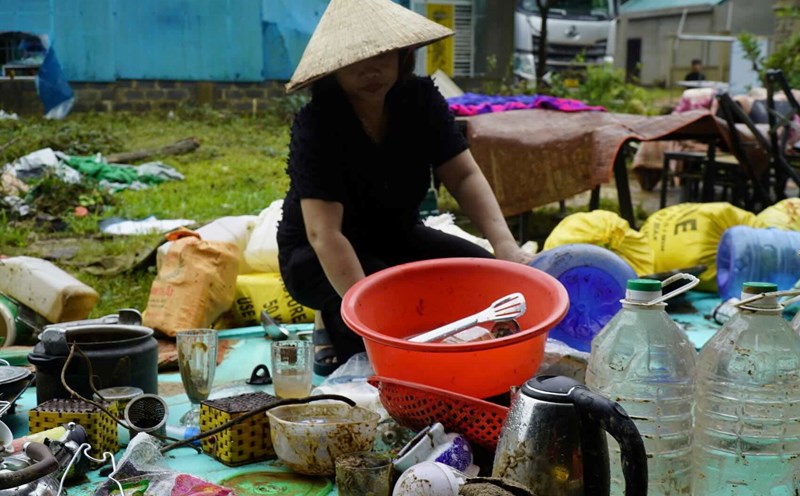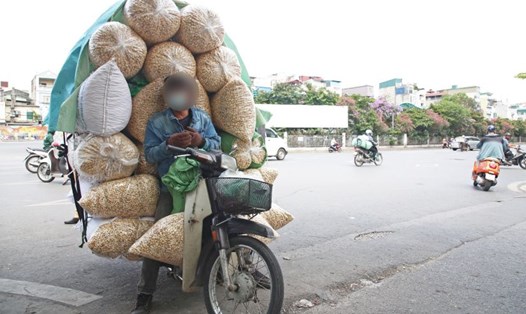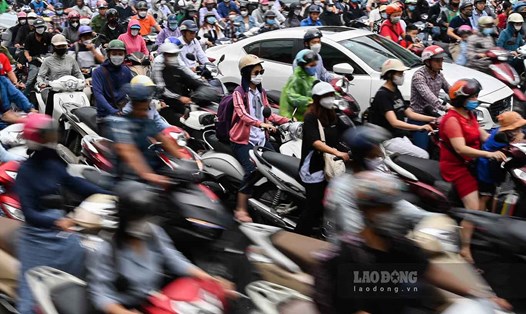The higher the standard, the harder it is for people.
This proposal is included in the third draft of the roadmap for implementing emission standards for motor vehicles, which has just been announced by the Ministry of Justice. Although this is only a proposal of the Ministry of Transport, it has received much attention from the people, especially those in special occupations such as transporting goods by this means.
Mr. Nguyen Thanh - a cargo driver in Ha Dong district, Hanoi - said: "Because of the nature of my job, I often have to carry heavy goods, so my motorbike deteriorates very quickly, so if the standards are too high, my vehicle will have difficulty meeting them. Besides, mass inspections will cause overload at maintenance facilities and inspection centers."
Some used motorcycle users are also concerned that if their vehicle does not meet the new standards, they may face major replacement or repair costs, putting them under financial pressure.
“Upgrading emission standards will increase the price of new cars and make the maintenance cost of old cars more expensive. For poor workers, the additional fee will create an additional burden when making a living is becoming more and more difficult,” said Mr. Tran Hoa (Cau Giay District, Hanoi).
Pilot implementation to promote effectiveness
From the experts' perspective, raising the emission standards for two-wheeled motorbikes to level 4 is a necessary step in the context of air pollution becoming a serious problem in many big cities.
According to Dr. Nguyen Xuan Thuy - former Director of the Transport Publishing House - said: "Raising this standard not only helps reduce toxic gas emissions but also conforms to the global trend of environmental protection and sustainable development. In the world, advanced countries have applied stricter emission standards, Vietnam also needs to adjust to meet green development goals and reduce negative impacts from means of transport".
However, the former Director of the Transport Publishing House also said that if emission testing standards are applied, it is necessary to supplement accompanying support policies, such as old vehicle recall programs or financial support for those who want to switch to environmentally friendly vehicles, to minimize the burden on people.
Dr. Phan Le Binh - Transport expert of the Japan International Cooperation Agency (JICA) - assessed: "First of all, the Ministry of Transport needs to conduct a pilot in certain localities or areas. The pilot will help to evaluate more accurately the effectiveness of the policy, thereby adjusting appropriate regulations and avoiding unwanted impacts on the community."
According to this opinion, the first small-scale trial will allow the authorities to test the adaptability of both people and businesses, and assess the economic, social and environmental impacts. If the positive results are found, wider application can be implemented in a clearer and more reasonable roadmap.
This not only helps reduce risks but also creates conditions for stakeholders to have better preparation time in terms of technology, costs, infrastructure... and more importantly, people's peace of mind about the State's innovation policies.









